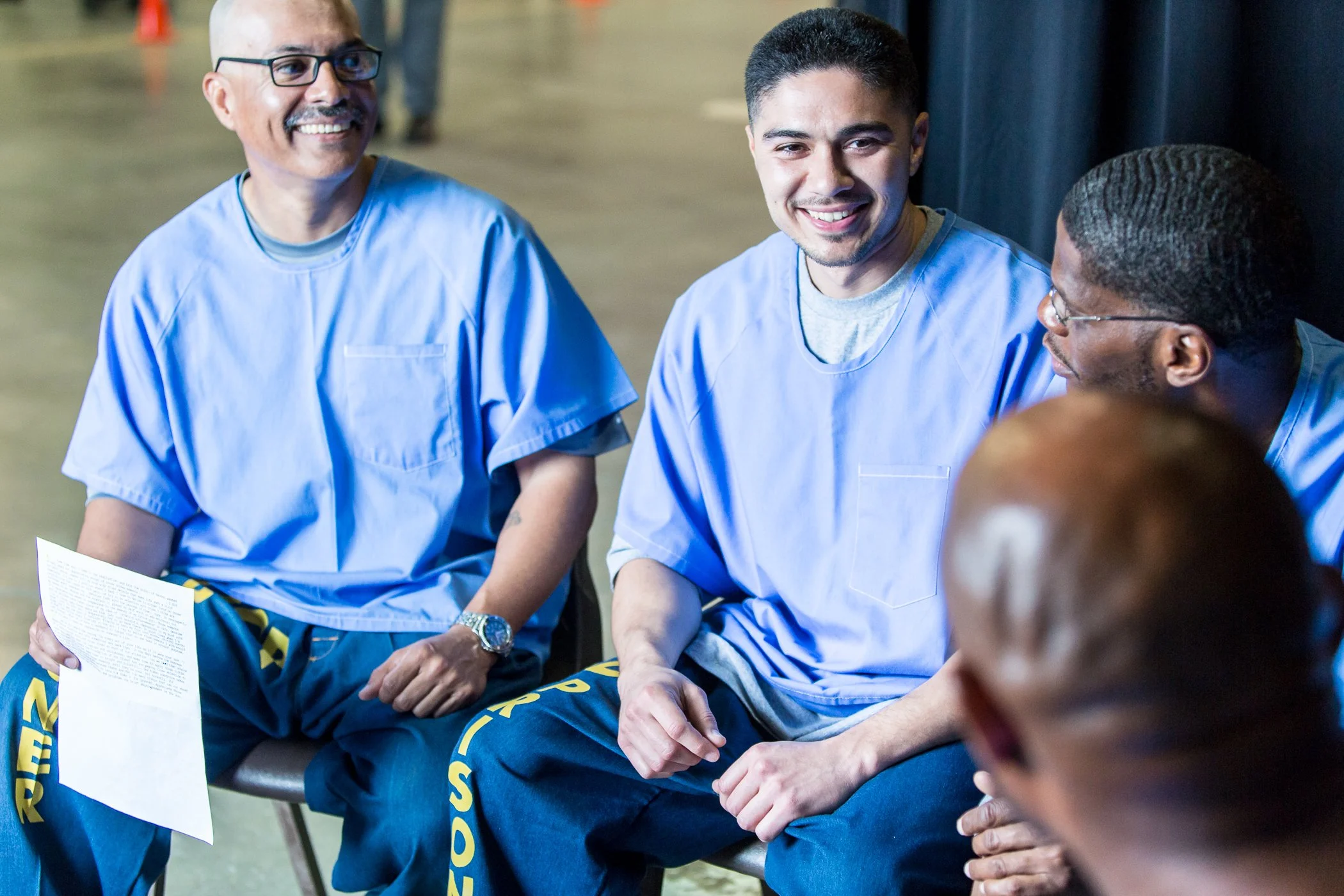Kevin was selected to be graduation speaker for the inaugural class of UC Irvine’s LIFTED Bachelor's degree in sociology!
This is a big deal on so many levels. First, Kevin has never spoken like this before and feels quite overwhelmed and honored to represent his cohort. Second, no one in California has had access to a bachelor’s degree while incarcerated…until now. Third, Kevin and his classmates are graduating from UC Irvine, no less!
Kevin has worked on writing his speech for weeks. Now comes the time to practice its delivery. And, with our history of organizing TEDx events and coaching its speakers, he asks for help.
This is where I love our circle. There exists such love and care for its members that everyone is more than willing to put aside our day’s agenda (and some really cool activities we had planned) to provide Kevin with the support all of us would want.
We build a podium with a dolly, a desk, folded blankets and a meditation cushion. We turn our circle of chairs into rows. After a few deep breaths, Kevin starts speaking. And WOW. For the first ever delivery of his speech to more than one person, his delivery is strong, clear and articulate. As we told him, if he delivered it just like that on graduation day, it would blow everyone away.
Kevin remains hungry to learn how to take his speech to an even higher level. Despite having minimal technical or experiential expertise in the matter, the team’s feedback is wildly accurate. They leverage how Kevin is making them feel to highlight places to enhance his connection with the audience and the impact of his words.
Kevin grows exponentially between delivery #1 and delivery #2. I cannot help but wonder how it’s going to be for his graduation day delivery, carried by the joy and celebration of his classmates, their families and IC Irvine faculty. It will be more than worthy of the first ever graduation speech of UC Irvine’s LIFTED cohort #1. More importantly, worthy of the man Kevin has given himself permission to become.
As we stepped into that day’s closing circle, I reflected on the beauty and rarity of what we had just collectively done. It takes courage to put our agenda and desires to the side to focus an entire team’s and day’s resources on one person.
I mean, when’s the last time you went to a meeting with an agenda and said “Sure, let’s ignore our entire agenda for the entire meeting to support only one person on something completely unrelated to what we do here”?
Well, this is what our team said. In other words, “You, Kevin, matter so much to us that we’ll put your personal needs above our collective desires.”
You have a choice: You have this same opportunity to show a person how much they matter. Have the courage to place their humanity over the self-imposed agenda and deadlines. You’ll likely be surprised by what it creates. For us, it was undoubtedly one of the key underlying characteristics that led to the success of our TEDx events, recognized with the highest score ever given to a TEDx event. What is it going to open up for you?
PS: With their actions, our team told Kevin he mattered not once, but twice. The following Tuesday, I was traveling, a rare Tuesday away from Donovan. Instead of taking advantage of that Tuesday afternoon off to attend to their many other programmatic obligations, the team gathered in our usual room, at our usual time, for the usual three hours, without me or any other volunteer, to give Kevin the rare gift of a larger audience to continue practicing his speech.






